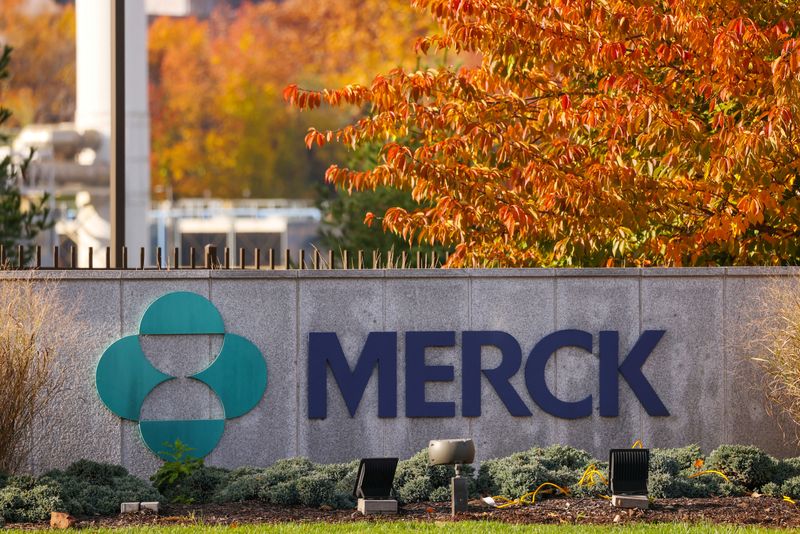By Michael Erman
(Reuters) -Merck & Co said on Sunday it will buy Prometheus Biosciences Inc for about $10.8 billion, picking up a promising experimental treatment for ulcerative colitis and Crohn's disease and building up its presence in immunology.
Merck will pay $200 per share for the California-based biotechnology company that specializes in treatments for autoimmune diseases, representing a 75.4% premium to Prometheus' last closing price.
Shares of Prometheus were trading at $194.49 before the bell on Monday.
"This is allowing us to move into immunology in a strong way and will allow us sustainable growth, we think, well into the 2030s given the long patent life," Merck Chief Executive Robert Davis said in an interview.
Davis said the Prometheus drug, PRA023, being developed to treat two inflammatory bowel diseases (IBD) - ulcerative colitis and Crohn's disease - and other autoimmune conditions, could be a multibillion-dollar seller for Merck. He said the recent release of encouraging mid-stage trial results drove Merck to pounce.
"We've been watching their clinical development program for a while," Davis said.
The likelihood of a counter-bid is slim as other large drugmakers already have a meaningful exposure to IBD or immunology, and Merck represents the cleanest acquirer from an antitrust perspective, said Stifel analyst Annabel Samimy.
"Merck has acquired a game-changing asset in PRA023," said Samimy.
If the deal closes in the third quarter of this year as hoped, Merck could launch a late-stage ulcerative colitis study of the drug in the fourth quarter or first quarter of 2024, Davis said.
Merck has been looking for deals to protect itself from eventual revenue loss as patents on its blockbuster cancer immunotherapy Keytruda begin to expire toward the end of the decade. The company reported nearly $21 billion in Keytruda sales last year.
Davis said revenue from the Prometheus acquisition could start to roll in around the time Keytruda patents potentially expire.
Davis compared the deal to one he struck in 2021 for Acceleron, which allowed Merck to quickly build out its pipeline of cardiovascular drugs.
"I believe now we have a very strong portfolio in the cardiometabolic space. We see this acquisition of Prometheus building out a similar portfolio in the immunology space," Davis said, adding that Merck brings scale, global reach and significant capital to deploy.
Last summer, Merck was reportedly in talks to buy cancer focused biotech Seagen Inc, but rival Pfizer Inc (NYSE:PFE) ended up striking a $43 billion deal for Seagen last month.
Davis said Merck would continue to be opportunistic on acquisitions, but is agnostic about size.

Merck's talks with Prometheus were first reported by the Wall Street Journal.
The company in February forecast 2023 earnings below Wall Street estimates and a steep decline in sales of its COVID-19 antiviral treatment.